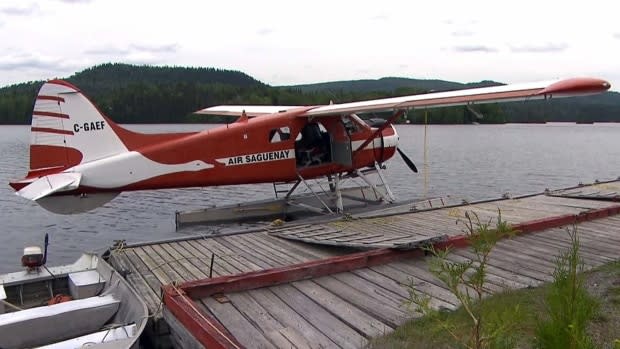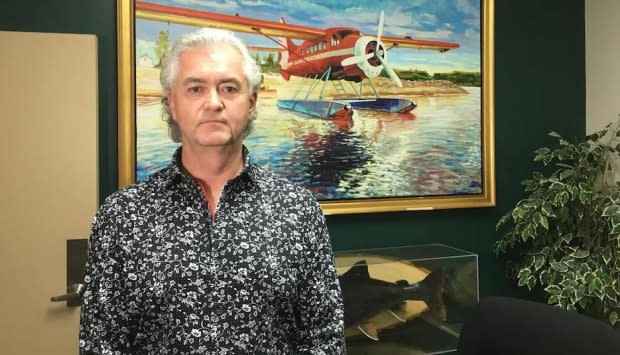Air Saguenay not insurable after fatal Labrador crash, shutting down operations
After three fatal crashes in nine years, the largest bush plane airline in Quebec is selling off its fleet.
Air Saguenay announced Wednesday it is ceasing operations, leaving about 50 employees out of work and closing 10 bases throughout rural Quebec and Labrador.
The news comes less than two weeks after the family of a fishing guide killed in a Labrador crash sued Air Saguenay for negligence.
Owner Jean Tremblay said the company's insurance policy is up for renewal in the spring, and he anticipated rates would double.
"That's if I found an insurer," he told reporters in Quebec on Wednesday. "Of course, I could have wanted to continue fighting, but I felt that I was standing in front of a wall."

The most recent lawsuit was filed by Cliff Randell, one of seven people killed when a de Havilland DHC-2 Beaver crashed into Mistastin Lake in a remote section of northern Labrador.
A week ago, Tremblay said the lawsuit was anticipated, and just a part of the aviation business.
He hoped the family could come to a resolution with lawyers for the airline's insurance company. Tremblay said they'd settled similar claims in the past.
Air Saguenay took a hit in 2015, when another DHC-2 Beaver crashed in the forest near Les Bergeronnes, Que., shortly after takeoff. Seven people were killed in that crash, too.
Tremblay's company is the largest provider of floatplane flights in Quebec, with 10 bases serving some of the most remote parts of Canada.

Some politicians in Quebec expressed concern at the company closing its bases, saying it offers a significant service to rural places in the province.
"I think there is a business plan that probably has to be redone for Air Saguenay to adapt to the new realities, but I think the government must be behind Air Saguenay," said Pierre Arcand, interim leader of Quebec's Liberal party.
The airline's revenues were rocked in 2018 when Quebec ended the northern caribou hunt. Flying hunters to and from remote camps accounted for about 35 per cent of Air Saguenay's business.
Tremblay told reporters the company's revenues were down to about a third of what they were at Air Saguenay's peak. Its fleet was also eroding away, down from 30 planes to just 12.
Despite the closure, Tremblay said employees and suppliers will be paid.
Read more from CBC Newfoundland and Labrador


